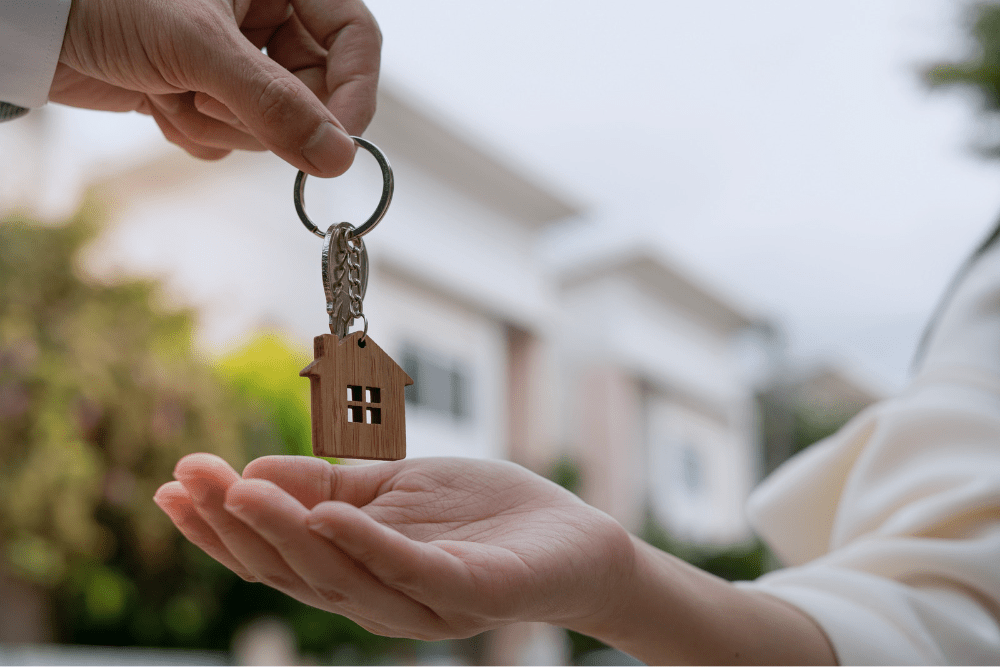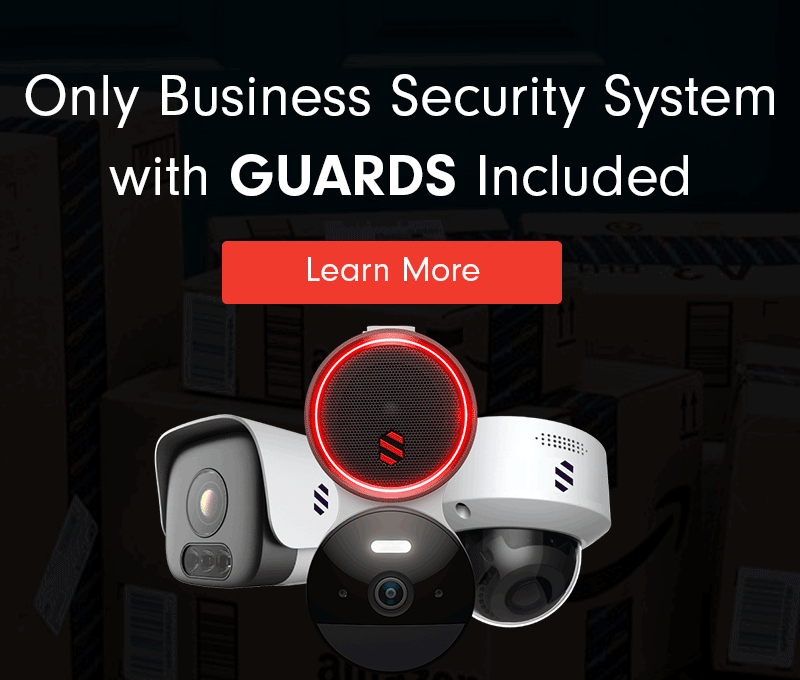10 Tenant Safety Measures for Property Managers

When tenants feel safe, they tend to stay. Of course, as a property manager, that’s what you want. You show an apartment. Someone signs a lease. They pay their rent, like clockwork, month after month. Tenant safety leads to tenant longevity.
Conversely, when tenants don’t feel safe, turnover goes up, some units remain empty, and you find yourself renting to folks you’d normally turn away. This is true regardless of the crime stats in your area. Safety is a feeling. Sometimes it’s based on logical evidence—like apartment break-ins or assaults. A lot of times, however, it’s based on the presence or absence of security measures that lead to a feeling of “my property manager has my back.”
Below, we’ll cover some of the required safety measures all apartment complexes must have. Then we’ll cover the top tenant safety and security improvements you can make to your property that will make your tenants feel more than safe.
The Importance of Tenant Safety Measures
It might be obvious, but we’ll say it anyway: Multifamily residential security measures do a lot more than create a feeling. They also reduce theft, vandalism, assaults, accidents, and illegal activity. That means you’ll likely get a break on your insurance premiums.
You’ll also avoid getting on the wrong side of numerous state laws that require landlords to provide a “habitable condition” for their tenants. For example, in Pennsylvania, broken door locks and windows are specifically listed as examples of “uninhabitable conditions.” On top of this, some locations require specific types of safety measures such as deadbolt door locks. Fail to provide them and you can end up in legal hot water.
Similarly, according to the “reasonable care” standard, property owners must exercise the same degree of caution or concern for others that an ordinarily prudent rational person would use in the same circumstances. Put another way, tenants have a right to expect a reasonable amount of safety and security when they are on your property.
Required Multifamily Safety Measures
If you’re running a multifamily property, there are many required safety measures you need to have in place. Most of these are universal, but it’s always wise to check your local building codes to make sure your property is in full compliance. Here are some general safety requirements every property manager must implement.
- Install and maintain smoke and carbon monoxide detectors
- Place fire extinguishers throughout the property and regularly rest them
- Ensure emergency contact information is readily available and tenants know what to do during an emergency
- Communicate clearly with tenants about any potential safety hazards in the building and the dates they will be addressed
- Promptly respond to maintenance requests
- Maintain and regularly inspect the HVAC system
With these out of the way, let’s get into the top 10 bonus safety and security measures.
The Top 10 Tenant Safety Measures
To ensure tenant safety, consider implementing the following.
#1. Use Improved Door and Window Locks.
According to the National Crime Prevention Council, criminals scope out apartments that seem easy to access. That means they’ll target rental units with flimsy door and window locks that are relatively easy to jimmy.
To avoid this, outfit all windows with locks as well as access doors with:
- Primary locks with an American National Standards Institute (ANSI) grade of 1 or 2. That means the lock is strong enough to withstand five or more serious blows.
- Secondary grade 1 reinforced deadbolt locks with bolts that are at least an inch long. These locks prevent criminals from prying open a door. If your tenants have attached garages, install deadbolts on the door that leads from the garage into the home.
- Door chains that allow a tenant to open the door a crack.
#2. Add Heavy-Duty Doors.
Choose steel or solid-core wood for your unit doors. Also, include a peephole so tenants can see who’s outside before opening the door.
#3: Reinforce Patio Doors.
This is especially important for sliding glass doors, which can be pushed inward or lifted off their tracks. Consider adding a:
- Rod that can be placed in the track, to stop the door from sliding.
- Locking pin in the overhead frame, to stop someone from lifting the door.
#4: Update Keys from One Tenant to the Next.
After a tenant moves out, it’s not enough to ask them to return their keys. That’s because keys can easily be copied and distributed. Instead, you’ll want to ensure their existing keys are no longer functional.
One way to do this is to change the locks from one tenant to the next. Another option is upgrading to one of the following types of locks.
- Easily rekeyed locks: Brands like Kwikset allow you to reset their locks by inserting a key and then using a tool to change the lock setting. This wipes the lock’s memory, so the old key no longer works, but the new key does.
- Keypad locks: Rather than a key, tenants use a code to get in. You can easily change the code from one tenant to the next.
- Landlord locks: These allow you to replace the cylinder between tenants.
- Digital locks: Tenants can unlock these with a smartphone, key fob, or keycard, and you can reset them from one tenant to the next.
#5. Secure all Common Areas.
In addition to wanting to feel safe inside their apartments, tenants also want to have a sense of safety outside on the premises. If possible, install safety fencing around outdoor areas, like swimming pools. For multi-unit buildings, make sure to include security at the main ground-floor entrance.
#6: Limit Master Keys.
Master keys are certainly convenient, but they can also be highly problematic.
Case in point: In 1989 a man broke into a unit, kidnapped the two young women who lived there, and murdered them. He’d gained access from a master key he’d acquired when painting units in the apartment complex.
Because of dangers like this, you’ll want to ensure master keys are limited. Perform a background check on everyone who has access to one and regularly update them.
#7: Add Lighting.
Lighting does a lot more than just deterring crime. It also boosts tenant safety in other ways. People are less likely to trip and fall if they can see the ground they’re walking on, for example.
Install lighting in all common areas, including walkways, entrances, parking areas, elevators, hallways, stairways, laundry rooms, and storage areas.
#8: Maintain a Clean, Safe Property.
How your property looks can massively affect how safe tenants feel.
Keep walkways free from debris. Ensure trash is picked up regularly and litter removed. Address vandalism right away, and regularly maintain equipment and lighting.
#9: Screen Tenants and Employees.
Perform background checks before signing leases as well as before hiring employees and contractors.
#10: Add or upgrade your security system.
Buildings without security systems are more likely to be targeted by criminals. In a survey of 500 convicted burglars, 37% said the presence of a security camera would stop them from attempting a break-in.
Newer cameras offer many features not available in traditional models. These include:
- High-definition color night vision that captures a clear picture in low and no-light environments.
- Artificial intelligence that can distinguish between human activity and non-threatening movement. When AI cameras detect a threat, they can stream the video feed to a human guard within seconds.
- 2-way audio that allows you (or a hired guard) to talk directly to the people on camera.
- Live security monitoring so authorities are alerted, in seconds, to illegal activity.
Deep Sentinel checks these boxes. The AI-powered live surveillance system is one of the most sophisticated multifamily residential security solutions on the market today.
When compared to onsite security guards, monitored AI-assisted cameras are less costly, but just as effective. Even better, they provide tenants with that important sense of safety. For information about security cameras and monitoring for multifamily properties, call 833-983-6006.
Need a Solution that Prevents Crime?
Deep Sentinel is the only security technology that delivers the experience of a personal guard on every customer’s home and business. Visit deepsentinel.com/business or call 833-983-6006

